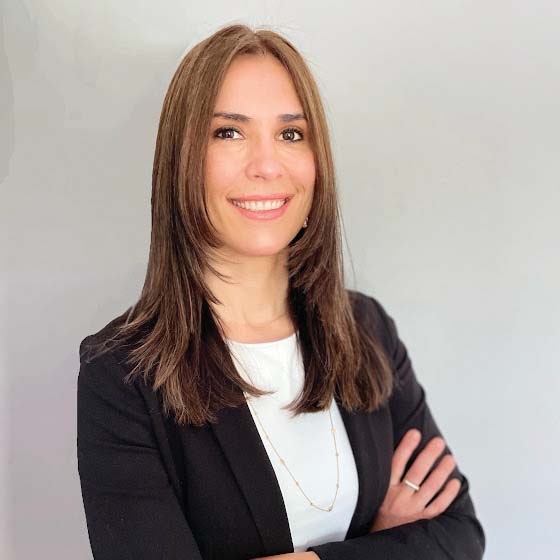
Gamze Yilmaz
Area of Expertise
AI-Enhanced Pedagogy in Higher Education, Design Thinking, Project-Based Learning, Online Message Perceptions, Social Media and Society
Degrees
PhD (Communication Studies), 2012, University of Texas at Austin
Professional Publications & Contributions
- Yilmaz, G. (2023). Innovating the communication pedagogy: An application of flipped classroom technique in communication education. Journal of Communication Pedagogy, 7, 3-19. https://doi.org/10.31446/JCP.2023.1.02 (Article of the Year Award)
- Yilmaz, G. & Bilen, M. (2022). Sensemaking in a networked world: COVID-19 vaccine hesitancy in Turkey. Communication Studies. https://doi.org/10.1080/10510974.2022.2097285
- Arzik-Erzurumlu, O. & Yilmaz, G. (2022). From remote control to tweets: How do viewers (re)shape quality criteria in the interpretation of the Oscars on Twitter. Interpreting. https://doi.org/10.1075/intp.00083.arz
- Yilmaz, G. (2021). Revitalizing the communication classroom: A case of design thinking. Communication Teacher. https://doi.org/10.1080/17404622.2021.1962934
- Yilmaz, G., & Blackburn, K. (2020). How to ask for donations: A language perspective on online fundraising success. Atlantic Journal of Communication. 30(1), 32-47. https://doi.org/10.1080/15456870.2020.1808660
- Lin, Z., Anagondahalli, D., & Yilmaz, G. (2019). Customers or academic trainees? An experimental investigation to reduce academic entitlement in the college classroom. Communication Studies, 70, 507-519. Doi: 10.1080/10510974.2019.1597745
- Lefevbre, L., Yilmaz, G., Lefevbre, L., Allen, M. (2019). Argumentative communication in cooperative learning groups: Members’ use of evidence and non-evidence. Communication Teacher, 34, 68-86. Doi: 10.1080/17404622.2019.1614204
- Blackburn, K. & Yilmaz, G. & Boyd, R. (2018). Food for thought: Exploring how people think and talk about food online. Appetite, 123, 390-401. Doi: 10.1016/j.appet.2018.01.022
- Yilmaz, G. (2017). Bivariate statistics, significance test, z-scores. In M. Allen (Ed.), The SAGE encyclopedia of communication research methods. Thousand Oaks, CA: Sage.
- Yilmaz, G., & Youngreen, R. (2016). The application of minority influence in CMC groups. Small Group Research, 47, 692-719. doi:10.1177/1046496416661033
- Quintero Johnson, J., & Yilmaz, G., Najarian, K. (2016). Optimizing the presentation of mental health information in social media: The effects of message tailoring and platform on source perceptions, message processing, and health outcomes. Health Communication, 32, 1121-1132. Doi:10.1080/10410236.2016.1214218
- Yilmaz, G., & Lefevbre, L. (2016). The effects of self-awareness and self-reflective writing on online task performance. International Journal of Cyber Behavior, Psychology and Learning, 6, 39-55. doi:10.4018/IJCBPL.2016040103
- Yilmaz, G. & Quintero Johnson, J. (2016). Tweeting facts, Facebooking lives: The influence of language use and modality on online source credibility. Communication Research Reports, 33, 137-144. Doi:10.1080/08824096.2016.1155047
- Yilmaz, G. (2015). What you do and how you speak matter: Behavioral and linguistic determinants of performance in virtual teams. Journal of Language and Social Psychology, 35, 76-97. Doi: 0261927X15575772
- Yilmaz, G. & Peña, J. (2015). How do interpersonal behaviors and social categories affect language use? : The case of virtual teams. Communication Quarterly, 63, 427-443. Doi:10.1080/01463373.2015.1058285
- Yilmaz, G. (2014). Let’s peel the onion together: An application of Schein’s model of organizational culture. Communication Teacher. Doi: 10.1080/17404622.2014.939674
- Yilmaz, G., & Peña, J. (2014). The effects of group membership and interpersonal behaviors on intentions to form subgroups in virtual teams. Communication Research, 41, 333-352. Doi: 10.1177/0093650212443696
Additional Information
Gamze Yilmaz (PhD, The University of Texas at Austin) is an Associate Professor of Communication at the University of Massachusetts Boston. Her research focuses on cognitive and behavioral processes in language use on social media and the impact of pedagogical innovations on student learning experiences. She has participated in the Teaching and Learning Studio at Stanford’s Hasso Plattner Institute of Design and is certified by IDEO U as a design thinking practitioner. These experiences have deeply influenced her pedagogical approach. She has successfully implemented flipped classroom techniques and design thinking methods in communication courses, fostering student-centered learning environments. Dr. Yilmaz's passion for pedagogical innovation and student learning naturally extends to AI-enhanced pedagogy. Driven by a “cautious curiosity” about the role of AI in higher education, she launched the AI for Higher Ed Project (aiforhighered.com). Dr. Yilmaz emphasizes the importance of ongoing experimentation and critical reflection on teaching practices as AI technologies rapidly evolve. She aims to develop feasible, intentional, and responsible AI strategies for student learning and build a community of professors committed to continuous improvement and thoughtful adaptation of their pedagogical practices. Dr. Yilmaz’s research has been published in several peer-reviewed journals including Communication Research, Health Communication, Communication Quarterly, Journal of Language and Social Psychology, Communication Studies, Communication Research Reports, and Communication Teacher. Additionally, she presented her work in national and international conferences such as National Communication Association and International Communication Association.
